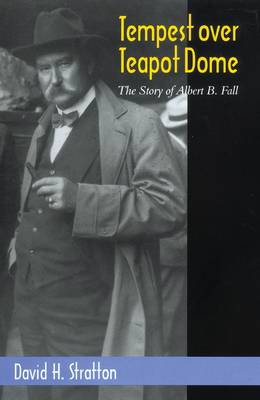
- Retrait gratuit dans votre magasin Club
- 7.000.000 titres dans notre catalogue
- Payer en toute sécurité
- Toujours un magasin près de chez vous
- Retrait gratuit dans votre magasin Club
- 7.000.0000 titres dans notre catalogue
- Payer en toute sécurité
- Toujours un magasin près de chez vous
Description
Albert B. Fall, interior secretary in the Harding administration, was the first American cabinet member sent to prison for a crime committed in office. In the Teapot Dome affair - the worst modern political scandal until Watergate - Fall leased two naval oil reserves, Wyoming's Teapot Dome and California's Elk Hills, to Harry F. Sinclair and Edward L. Doheny and received payments of $404,000 from the two millionaire oilmen. Historian David Stratton pulls no punches as he sheds new light on western and national politics, conservation, and economic development in the late nineteenth and early twentieth centuries.
Tempest over Teapot Dome describes Fall's role in Harding's administration, his tribulations in court before going to prison in 1931, his freewheeling career in New Mexico politics, his lawyering for underdog ranchers in a bloody range war, his gut-fighting style as a U. S. senator who opposed Woodrow Wilson's foreign policy, and his strident activities as an expert on Latin American affairs, particularly U. S.-Mexican relations.
Fall's belief in the unrestricted and immediate disposition of public lands was as typically western as his black, broad-brimmed Stetson hat and his love of fine horses.
Spécifications
Parties prenantes
- Auteur(s) :
- Editeur:
Contenu
- Nombre de pages :
- 394
- Langue:
- Anglais
- Collection :
- Tome:
- n° 16
Caractéristiques
- EAN:
- 9780806130781
- Date de parution :
- 15-10-98
- Format:
- Livre relié
- Format numérique:
- Genaaid
- Dimensions :
- 148 mm x 223 mm
- Poids :
- 616 g

Les avis
Nous publions uniquement les avis qui respectent les conditions requises. Consultez nos conditions pour les avis.






